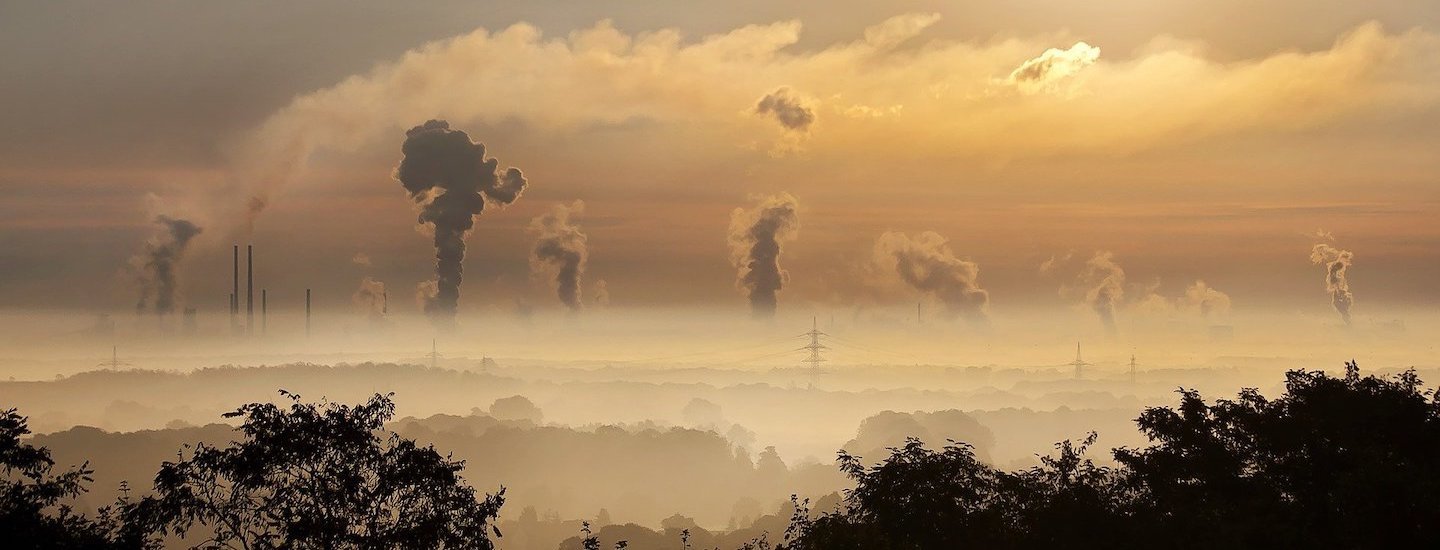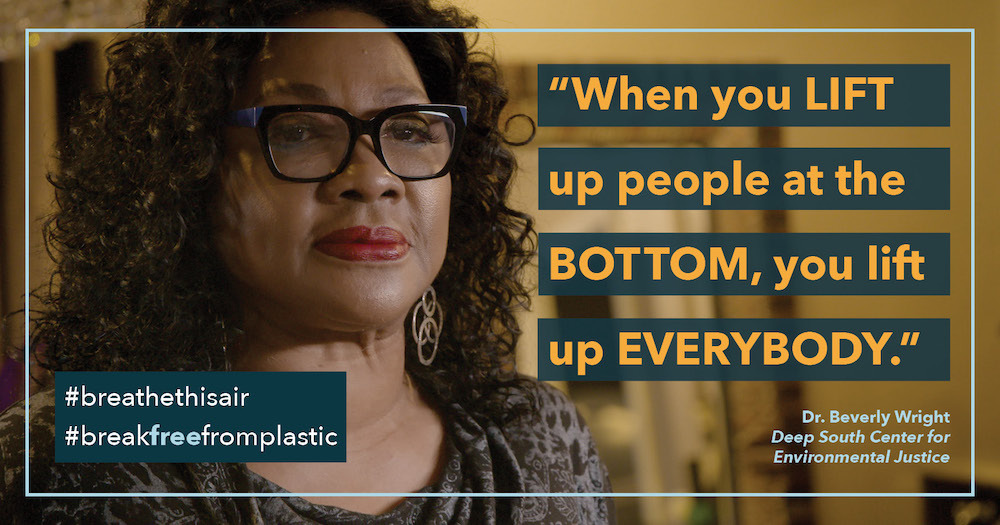
Plastic doesn’t just pollute our ocean, waterways, and beaches, it also pollutes the air during production and disposal. In a newly released short film titled “Breathe This Air” the Peak Plastic Foundation exposes the true cost behind the convenience of our plastic products. Showcasing local residents turned activists, it tells the story of courageous people who were called into action in the face of disease and the risk of premature death due to pollution.
“It is a community where we look out for and protect each other.” - Sharon Lavigne, RISE St. James
The people of St. James Parish, Louisiana (commonly referred to as Cancer Alley) have had their health and homes violated by at least 136 chemical plants and 6 refineries, with Black families and people of color being put at the highest risk. Since the first plant was built in the late 1960s there has been a steady increase in the amount of disease and premature death in residents. In a 2014 study by the EPA, a tract in neighboring St. John the Baptist Parish was found to have the highest risk of liver and lung cancers in the country. Alarming imagery of homes, playgrounds, and community gatherings all with unsightly smoke stakes and towering factories as the backdrop make it soberingly obvious why the residents are suffering.
“Come and breathe this air. I bet you any money you’re going to leave here with a headache or a stomachache.” - Sharon Lavigne
The film goes on to discuss the unjust exposure to plastic incinerators primarily by Black, Indigenous, and Communities of Color. In Baltimore, Maryland the largest air polluter is the trash incinerator that has directly led to an increase in heart disease, stroke, cancer, and ultimately death. We then jump to Indonesia where our plastic “recycling” is being dumped in front of people’s homes and openly burned in nearby fields.
“Plastic is killing us all. And it’s not killing us equally.” Alan Lowenthal, US Representative – CA 47
Despite the facts, plastic production is set to continue to rise exponentially with no real action being taken on behalf of the companies and individuals who are most responsible. In comes the federal Break Free From Plastic Pollution Act. This bill pauses all new production facilities, bans non-recyclable single-use plastic, and requires corporations to take responsibility for the pollution their products create. It would help create new jobs in renewable energy, improved waste management, redesign, reuse, and repair. Most importantly, it would help pave the way towards more equitable opportunities for all people.

“We can decide to just hang around with oil and gas and go down with it. Or we can wake up and get on board with the future,” said Dr. Beverly Wright, “I believe that we are on the road to make really deep changes in our system and to move forward with a new concept of humanity.”
So why was this even allowed in the first place? Racist policies and decision-making have often been ingrained in our society and many times have been accepted as normal. To address it, we can all practice more radical empathy and put ourselves in the position of those who have had their right to life stripped away. Would you rest easily at the end of the day if you couldn’t breathe this air?
